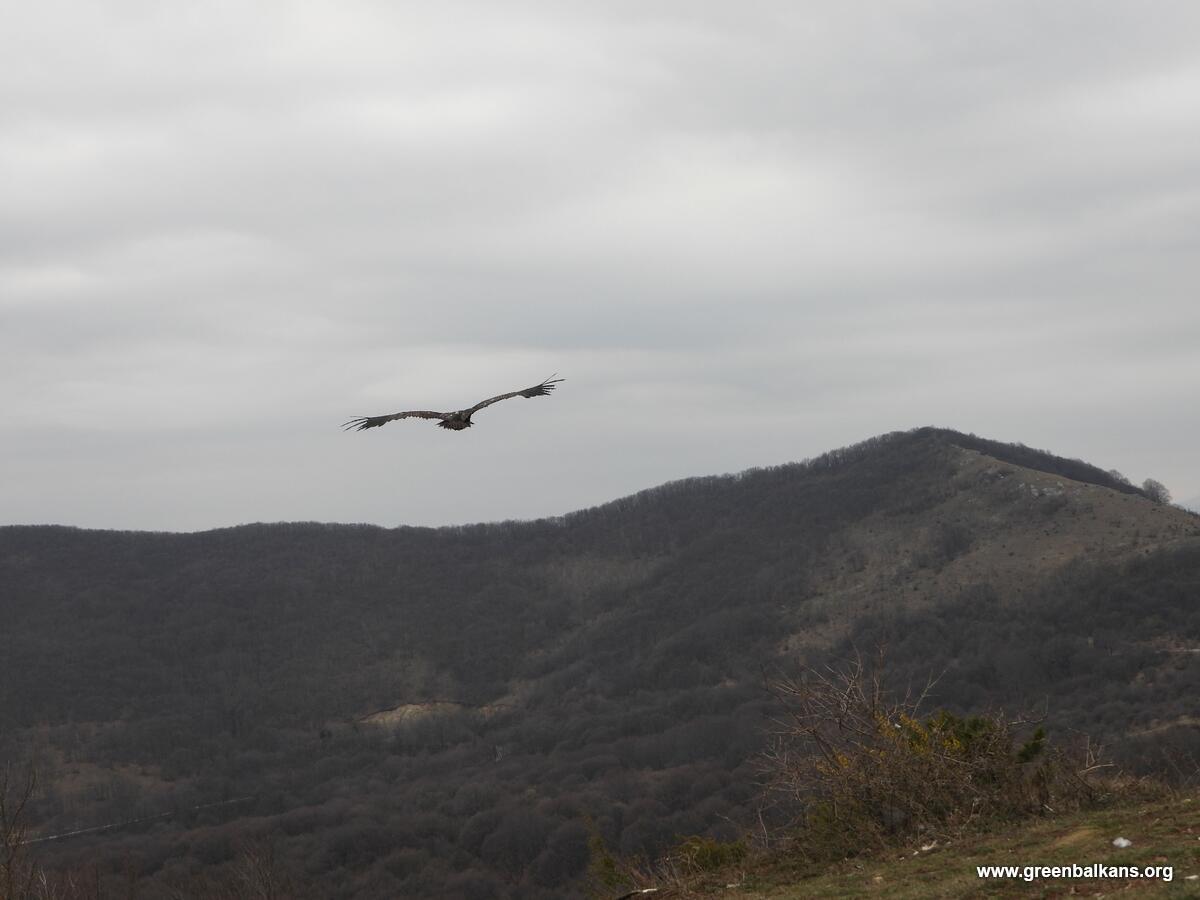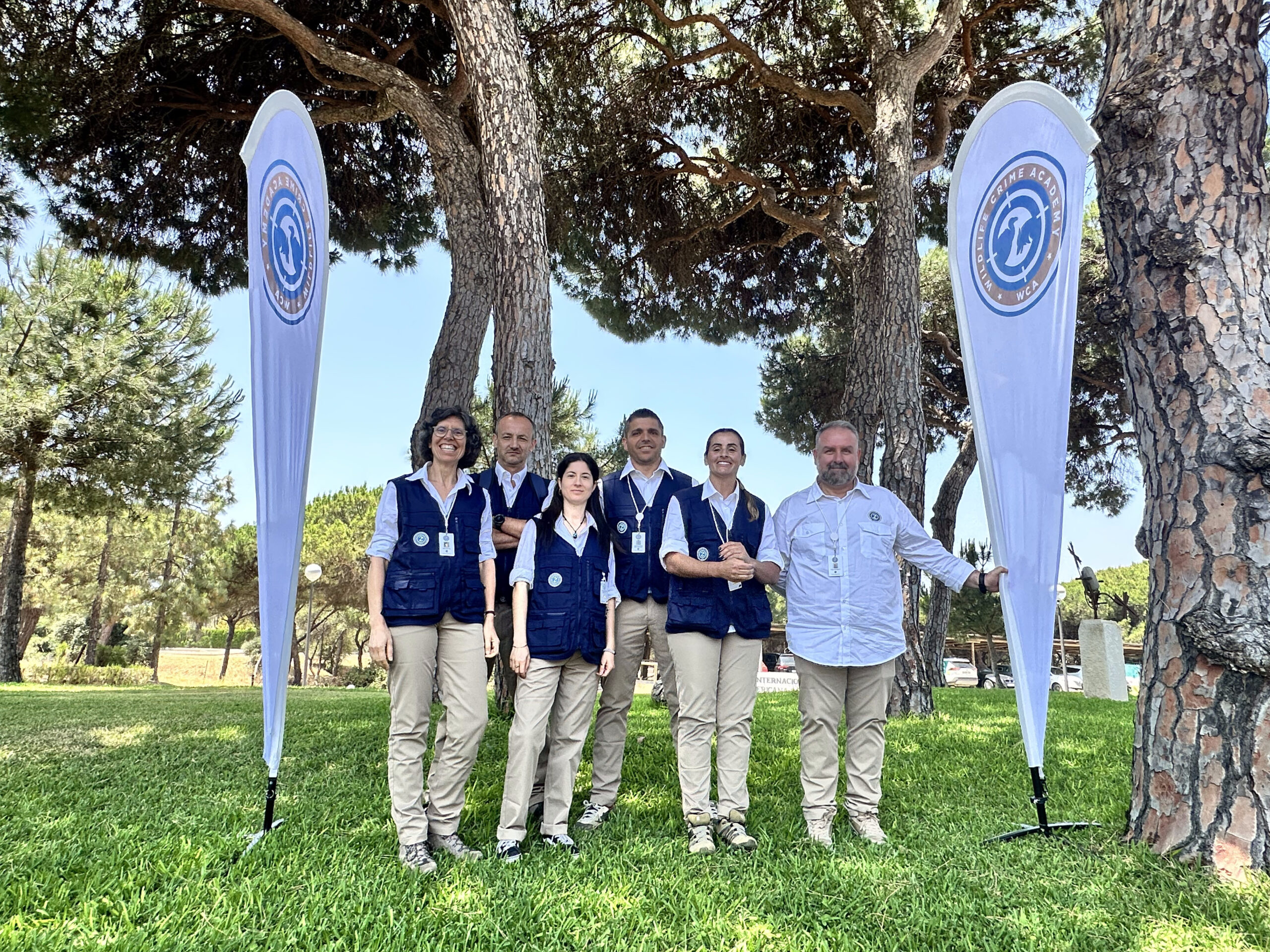Since February 2023, national authorities all over Europe have been working on enforcing the new EU regulation that forbids the use of lead ammunition in and around wetlands. A historical step in all EU countries, Liechtenstein, Norway and Iceland, towards minimising this toxic compound’s negative impacts that threaten habitats, species and human health. To support hunters moving to lead-free alternatives, the LIFE Aegypius Return project partners organised the conference entitled “Banning lead ammunition in Portugal” at the most prominent Portuguese hunting fair, Expocaça.
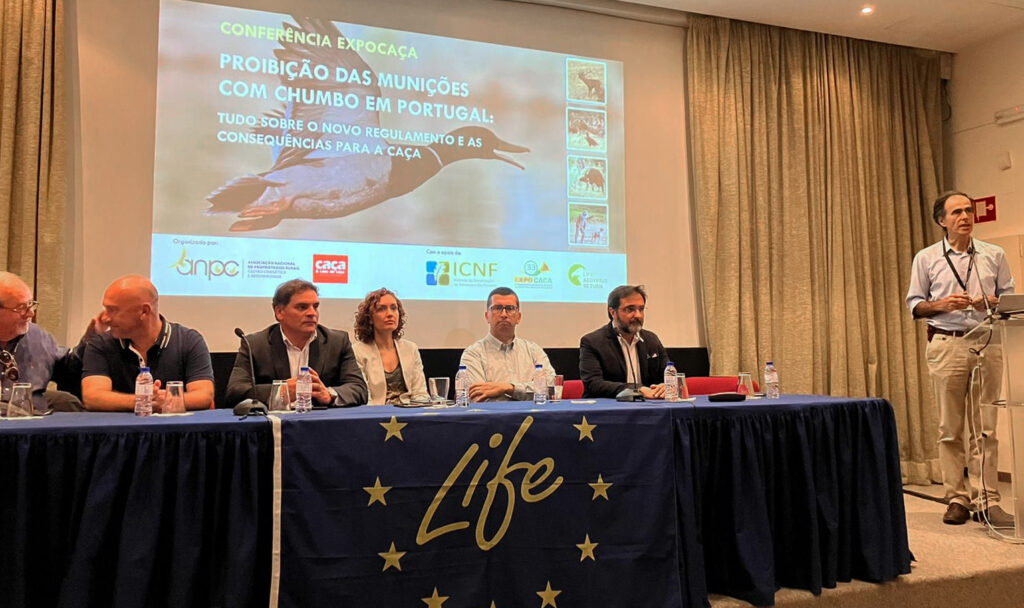
Banning lead ammunition in Portugal: Conference at the most prominent Portuguese hunting fair
Expocaça annually gathers over 22.000 visitors, a three-day event designed for hunters and game lovers. In the 2023 edition, LIFE Aegypius Return project partner ANPC organised a conference in collaboration with the Magazine “Caça e Cães de Caça” (C&CC) to discuss the enforcement of the EU regulation in Portugal and shed light on the transition to lead-free ammunition. Milene Matos, from the Vulture Conservation Foundation and LIFE Aegypius Return project coordinator, presented the impacts of lead contamination on scavengers and João Carvalho, from ANPC, introduced the ecological ammunition ambassadors initiative within the LIFE Aegypius Return project.
Over 60 participants joined the conference on 5 May, including hunters, the national Institute for Nature Conservation (ICNF) representatives and many other organisations relevant to the sector, that shared different perspectives on the topic. The highly participated final debate was an opportunity to hear the concerns on implementing the new regulation and its enforcement in the coming hunting season. A proper definition of wetlands and the extent of the territory where the regulation will be in force still needs to be determined. Hunters seemed receptive to the use of alternative ammunition on wetlands but showed resistance towards a total phase-out.
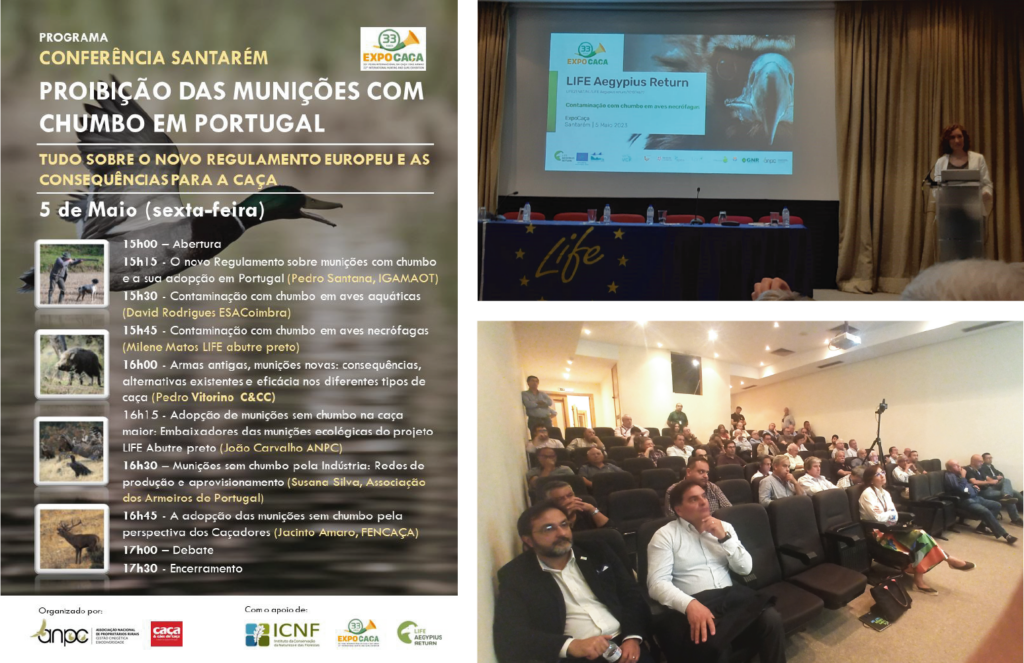
Keynote speakers shared the adoption of the EU regulation in Portugal (IGAMAOT) and the implications of lead ammunition on water birds (ESAC Coimbra) and scavengers (Vulture Conservation Foundation). There was a great emphasis on the transition to alternative ammunition, with dedicated talks on the characteristics of lead-free cartridges and their efficiency (C&CC), the ecological ammunition ambassadors within the LIFE Aegypius Return project (ANPC), the industry perspective on production and supply chains (Associação de Armeiros de Portugal), and the hunters’ perspective on adopting alternatives to lead (FENCAÇA).
Lead ammunition is severely affecting avifauna
Lead has been widely used in industrial processes, fishing, hunting, and shooting sports. Each hunting cartridge contains hundreds of rounded pellets that get scattered in the environment, contaminating soil and water. For avifauna, it is hazardous: many waterbirds mistake lead pellets for small stones known as ‘grit’ that help their digestion. Birds of prey and obligate scavengers, such as vultures, are directly affected by feeding on shot-game species carcasses that hunters do not retrieve.
According to ECHA – the European Chemicals Agency, 44 000 tonnes of lead are annually dispersed into the EU environment, putting at risk at least 135 million birds each year from direct ingestion of lead gunshot, 14 million birds from secondary ingestion and 7 million from the ingestion of lead fishing tackle. As lead is not eliminated from organisms, its impacts span across the trophic chain, a phenomenon called bioaccumulation. Scavenger birds, as the clean-up crew of our ecosystems, are also indirectly contaminated by lead accumulated in the animals on which they feed.
A silent threat for vultures in Europe
A study realised in Spain in 2020 found abnormal blood levels of lead in several birds of prey. Around 30% of Bearded Vultures and 95% of the wild Griffon Vultures captured were contaminated. For Griffon Vultures, whilst the majority were in a subclinical condition (73% of the Griffon Vultures caught), 17,8% were in a clinical and 4,2% were in a severe clinical condition. The study also found a high correlation between poisoning incidence and the hunting season.
In 2021, another study found lead in avian tissues, with 44% of the birds showing levels that exceeded the background thresholds. The authors suggest an impact on species demography and identify lead ammunition as the primary source of contamination for scavengers. Lead exposure can have sublethal effects on vultures, affecting the metabolism with the inhibition of enzymatic processes, impacting the immune, nervous and reproductive systems, and causing behavioural changes related to weight loss and movement. In extreme cases, it can provoke paralysis and convulsions, ultimately leading to death.
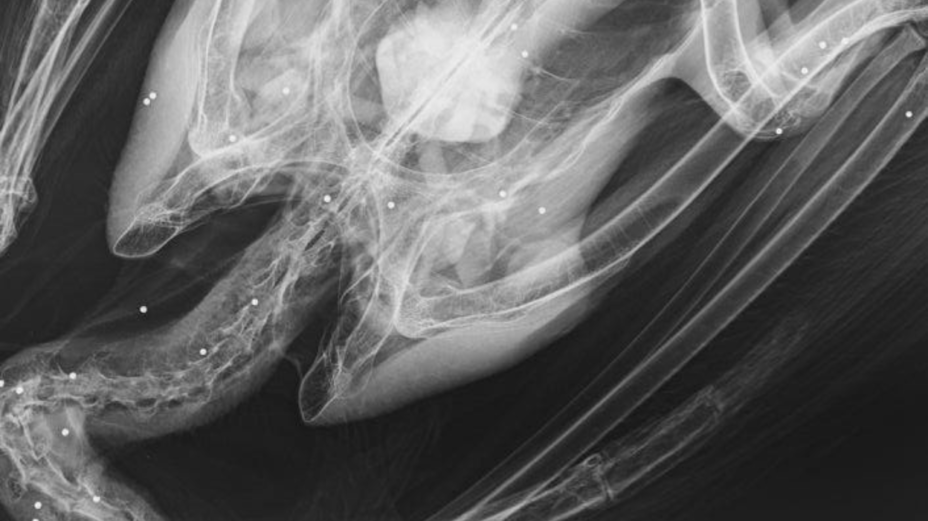
Supporting hunters in the transition to lead-free ammunition
The LIFE Aegypius Return project, co-financed by the EU’s LIFE Programme, aims to double the Cinereous Vulture breeding population along the border between Portugal and Western Spain. Project partners are working to improve food availability, habitat and nesting conditions. Great effort is also being put into mitigating poisoning incidents, with capacity-building events on wildlife crime and two new anti-poisoning brigades to be created (SEPNA, GNR).
To support hunters in the transition to lead-free ammunition, training sessions and dedicated workshops with ballistic experts will be held, where they will have the chance to test alternative ammunition. Fourteen lead-free hunting areas will be created in Portugal, and at least 300 hunters will be directly involved. Engagement with the hunting sector is fundamental, and the organisation of the conference was a significant opportunity to come together, understand their views and opinions and invite them to join in the project activities.
The conference was live-streamed on the C&CC Facebook page, you can watch it here.
The LIFE Aegypius Return project
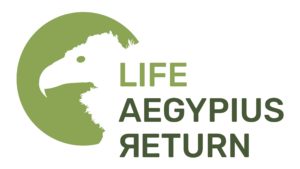
The LIFE Aegypius Return is a 3.7 million project, co-financed by the European Union’s LIFE Programme, whose success relies on the involvement of all relevant stakeholders and the extensive collaboration of the leading project partner, the Vulture Conservation Foundation (VCF), with all local partners: Palombar – Conservação da Natureza e do Património Rural, Herdade da Contenda, Sociedade Portuguesa para o Estudo das Aves, Liga para a Protecção da Natureza, Associação Transumância e Natureza, Fundación Naturaleza y Hombre, Guarda Nacional Republicana and Associação Nacional de Proprietários Rurais Gestão Cinegética e Biodiversidade.

